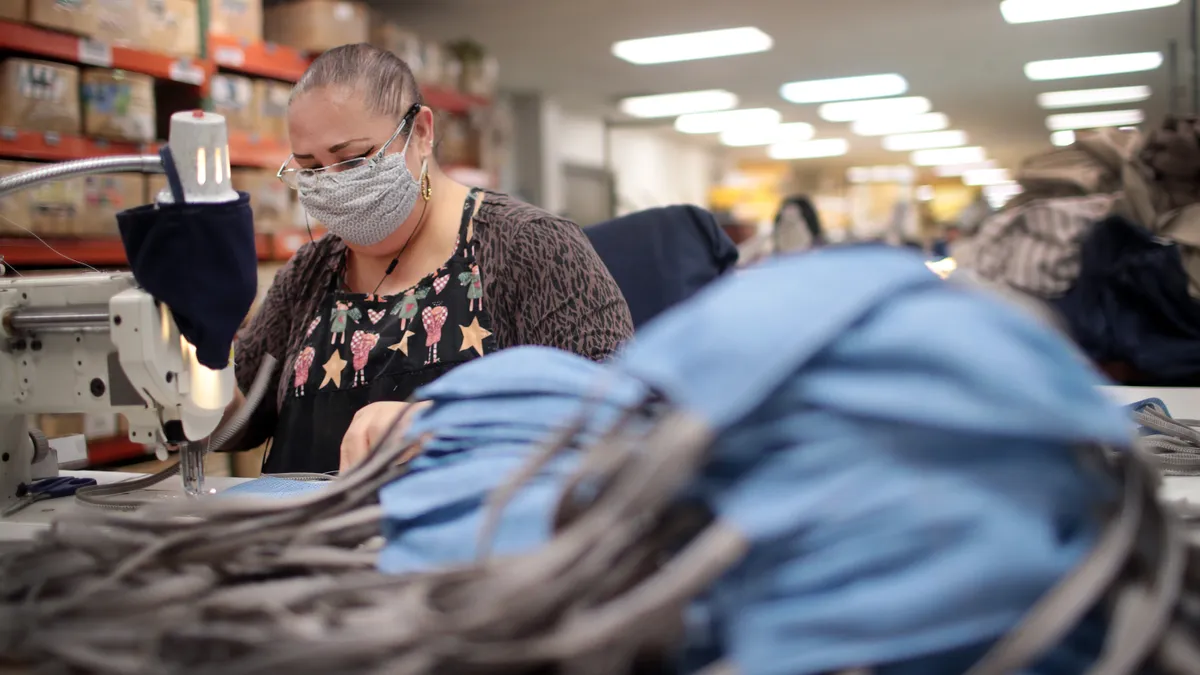Dive Brief:
- The U.S. Food and Drug Administration and the Veterans Health Administration have signed an agreement to increase medical product manufacturing capacity and flexibility in times of crisis.
- The agencies will create “digital stockpiles” to improve the resilience of domestic supply chains during emergencies, shortages and pandemics.
- The digital stockpiles will store electronic plans, instructions and methods to make and test medical products to enable trusted suppliers to quickly scale up production when needed, according to the agencies.
Dive Insight:
The COVID-19 pandemic exposed the shortcomings of existing supply chains. When the crisis struck, the U.S. and other countries struggled to meet demand for personal protective equipment and other medical devices used in the response to the coronavirus. The experience led officials to consider how to make supply chains more resilient and able to cope with crises.
Now, the FDA has signed a memorandum of understanding with the VHA. The agreement commits the two agencies to working together to develop and validate “a digital stockpile and associated distributed and flexible manufacturing technologies.”
Digital stockpiles are an answer to the question of how to make supply chains more resilient without also making them significantly less efficient. Rather than stockpiling physical goods or creating centralized factories that are inactive until needed, the FDA and VHA want to create a network of trusted suppliers that have the ability to make products at or near the point of use.
“Medical products such as personal protective equipment, nasal swabs, or even drugs and saline could be made near the point of care to help ameliorate or prevent shortages caused by supply chain disruptions,” the agreement states. “Using digital stockpiles relies on one or more trusted suppliers that can make the product from the digital information, either through methods like 3D printing or self-contained distributed manufacturing lines.”
The FDA and VHA agreed to share information, resources and subject matter expertise to define the requirements, systems and validation methods needed to create functional digital stockpiles. Together, they will set up distributed manufacturing capabilities that can be used to increase supply chain resilience, and develop educational training, outreach materials and programs to ensure they are using best practices for distributed and flexible manufacturing.
The MOU defines responsibilities that are specific to both parties, stating that the FDA will give access to systems in the OCET Advanced Manufacturing Innovation Hub related to distributed manufacturing and digital stockpiles and provide regulatory advice and guidance. OCET, an abbreviation of the Office of Counterterrorism and Emerging Threats, supports the adoption of advanced manufacturing techniques.










